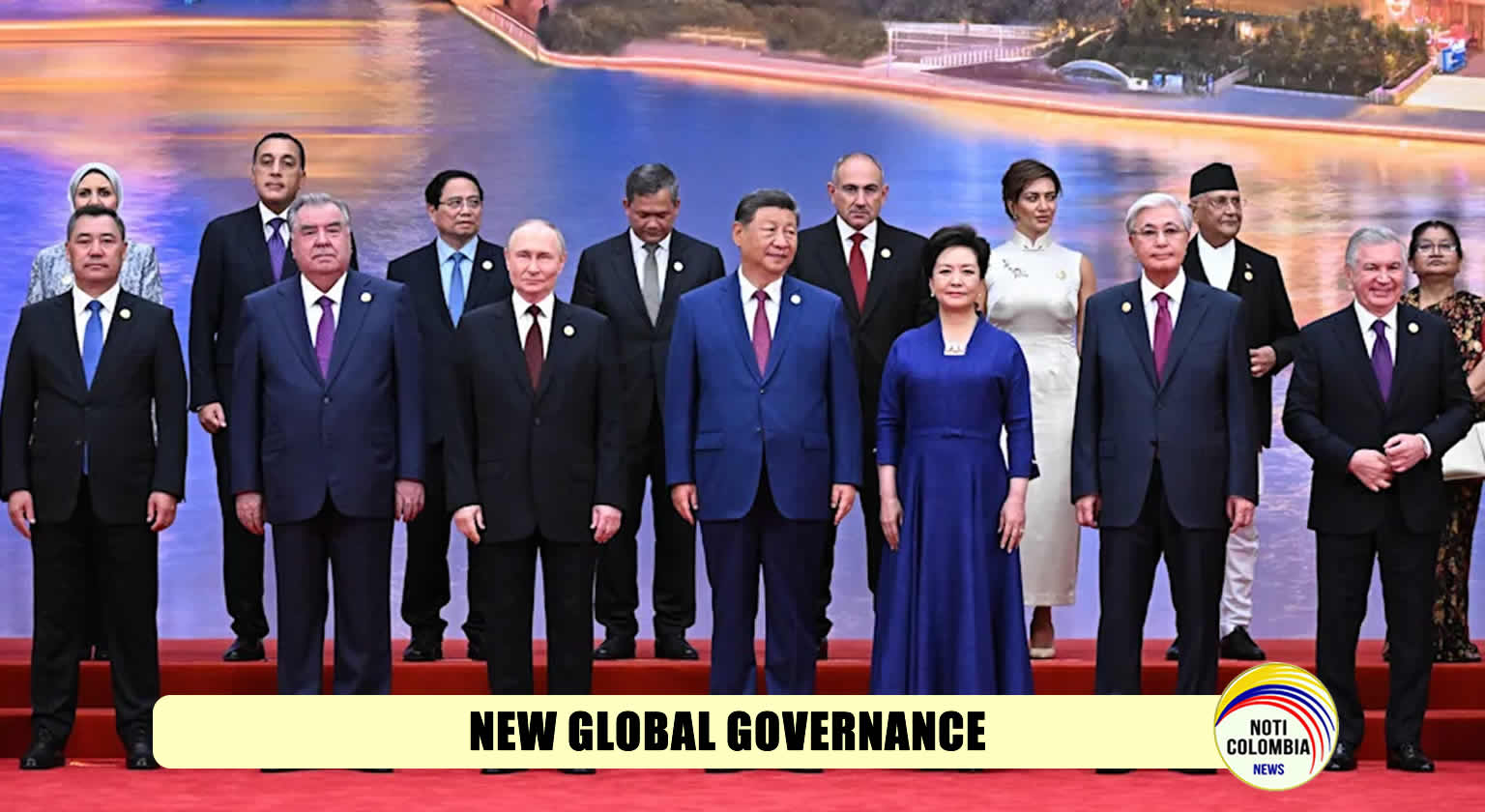
The recent summit of the Shanghai Cooperation Organization (SCO), held in Tianjin, China, marked a turning point in global geopolitics. Leaders of nuclear powers and emerging economies gathered with one clear message: the era of a single global empire is over.
The SCO is not only a political and economic forum. Today it represents a bloc that includes four recognized nuclear powers: China, Russia, India, and Pakistan. Alongside them are Iran, with an advanced nuclear program, and Belarus, which hosts Russian tactical nuclear weapons.
This combined military and strategic power makes the SCO a central actor. It not only challenges U.S. hegemony but also restricts Donald Trump’s plans to reassert influence in Latin America and expand unipolar dominance worldwide.
What the SCO Is and Why It Matters
The Shanghai Cooperation Organization was founded in 2001 as a regional security mechanism in Central Asia. Over time, it evolved into a political, economic, and military bloc that now includes ten full members and several partners.
Its members are China, Russia, India, Pakistan, Iran, Kazakhstan, Kyrgyzstan, Uzbekistan, Tajikistan, and Belarus. Together they represent more than 40% of the global population and a fast-growing share of global GDP.
The SCO stands apart from other multilateral forums because it brings together states that consistently question Western dominance. Above all, it concentrates unprecedented nuclear power outside NATO.
Leer: Gobierno Petro, ¿culpable en salud?
The SCO’s Nuclear Bloc
Washington’s greatest concern about the SCO lies in its nuclear capabilities.
- China: nuclear power since 1964, rapidly modernizing its arsenal.
- Russia: inheritor of the world’s largest nuclear stockpile.
- India: nuclear power since 1974, with significant missile capabilities.
- Pakistan: nuclear power since the 1990s, in constant rivalry with India.
Additionally:
- Iran: officially without nuclear weapons but with an advanced enrichment program.
- Belarus: hosts Russian tactical nuclear weapons since 2023.
Together, these actors give the SCO the ability to balance the strategic equation. Their existence alone blocks any unilateral imposition of power.
Xi Jinping and Vladimir Putin’s Message
During the summit, Chinese President Xi Jinping launched the Global Governance Initiative. It rests on five principles: sovereignty, multilateralism, respect for international law, practical cooperation, and people-centered development.
Leer: Paseo de la muerte Sanitas EPS
Russian President Vladimir Putin criticized the “Cold War mentality” of the West. He accused the United States of fueling conflicts and tensions across Europe and Asia.
The joint message was unmistakable: no single power can rule the world. Multipolar order is inevitable, and the SCO positions itself as its backbone.
Venezuela and Latin America Enter the Picture
One of the summit’s most striking announcements was Venezuela’s accession to the Global Governance Initiative. Though not a full member or observer, this step signals possible future integration.
For Latin America, the move is symbolic. It suggests the region is beginning to look toward a multipolar bloc that offers alternatives to Washington’s pressure.
Donald Trump, who has openly declared plans to reassert control over Latin America, now faces a nuclear and political counterweight that limits any attempt at total dominance.
Read: Shangai Cooperation Organisation
A Bloc with Economic and Military Power
The SCO is not solely about nuclear arsenals. The bloc advances in financial, energy, and technological cooperation. China drives multibillion-dollar infrastructure projects, Russia supplies vast energy resources, and India contributes technology and market access.
Militarily, SCO members conduct joint drills, coordinate counter-terrorism strategies, and strengthen regional security. This transforms the bloc into a de facto alliance, though without NATO’s formal structure.
The combination of economic reach and nuclear force positions the SCO as the primary geopolitical rival to the United States.
Leer: Leticia se quedaria sin rio?
A Brake on Trump’s Unipolar Expansion
Donald Trump has made clear he intends to restore U.S. global dominance, with Latin America as a strategic priority. His approach combines economic pressure, bilateral deals, and military presence.
Yet the rise of the SCO draws visible red lines. This multipolar bloc not only challenges interventions in Eurasia but also signals to Latin America: the region is no longer Washington’s exclusive ground.
Venezuela’s step toward SCO initiatives is a case in point. If other Latin American countries seek diversified alliances, the SCO could emerge as a strategic alternative partner.
Read: Nuclear Weapons
Conclusion
The Tianjin summit confirmed the SCO is no longer just a regional forum. It has become a global bloc with nuclear power. Its members represent over 40% of the world’s population and control arsenals capable of blocking any unilateral dominance.
Trump’s ambitions now face a real counterweight. The SCO consolidates as the nucleus of a multipolar order that redefines international rules.
Latin America, with Venezuela as a first mover, begins to glance toward this emerging axis. The key question is whether the region will seize the opportunity to reduce its dependency on the United States.
The global chessboard is shifting. The SCO’s nuclear bloc has made its stance clear: there will be no unipolar expansion without resistance.



